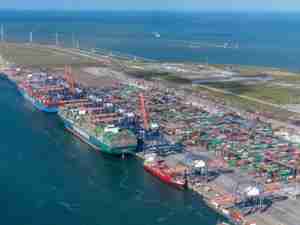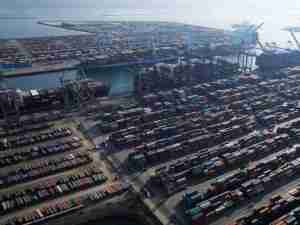- A project labor agreement that establishes aggressive local-hiring goals and workforce development funding for capital construction projects;
- Using project dollars to pay for job training to create a local workforce pipeline; and
- Partnerships with developers and contractors interested in putting local residents to work.
Port of Oakland says hundreds of new jobs are on the way
posted by AJOT | Mar 21 2017 at 11:21 AM | Ports & Terminals
Message during foundation visit: more skilled workers needed, training is key
Oakland, Calif. - Industrial development will soon create hundreds of new jobs at the Port of Oakland. The challenge: finding enough skilled workers to fill them. That was the message Port officials delivered to a visiting delegation from the philanthropic Kellogg Foundation last week.
The Port said it wants to fill the skills gap with training for job candidates. It added that its aim is to put more local people to work.
“Our economic impact is inextricably tied to the jobs we create,” Port Social Responsibility Director Amy Tharpe told visitors from the 87-year-old foundation. "The question we must ask ourselves is how does the Port’s business activity translate into maximum community benefit?”
Officials from Battle Creek, Mich.-based Kellogg Foundation, along with some foundation grant recipients, travelled to Oakland to learn how the Port creates jobs for underserved populations. The Port listed the ways:










